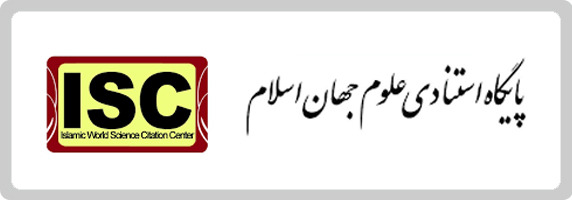Designing a Communication Skills Model for Elementary School Principals (First Stage) in Tehran Using a Grounded Theory Approach
Keywords:
Heutagogy, self-management, learning motivation, primary teachers, professional educationAbstract
This study aimed to investigate the effect of heutagogy-based training on self-management and learning motivation among primary school teachers. This research was a quasi-experimental study with a pretest-posttest control group design. The statistical population included primary school teachers in Langarud, from which 30 participants were selected through simple random sampling and divided into experimental and control groups. Data were collected using Fisher et al.’s (2013) Self-Directed Learning Questionnaire, including subscales of self-management and learning motivation. The experimental group received six sessions of heutagogy-based training. Data analysis was performed using univariate (ANCOVA) and multivariate (MANCOVA) covariance analysis. The results of ANCOVA indicated that heutagogical training had a significant impact on increasing self-management in the experimental group (F=2.250, p=0.045, η²=0.377). A significant difference was also observed in learning motivation between the two groups (F=3.357, p=0.008, η²=0.411). The findings suggest that heutagogy-based education can significantly enhance self-management skills and learning motivation in primary school teachers. Implementing this approach in teacher training programs may contribute to improving the overall quality of education.
Downloads
References
Amiruddin, A., Baharuddin, F. R., Setialaksana, W., Takbir, T., & Hasim, M. (2023). Structural Model of Pedagogy-Andragogy-Heutagogy Continuum on Pedagogical Competencies of Indonesian Vocational High School Teacher. https://doi.org/10.4108/eai.6-10-2022.2327435
Choi, W. (2022). Higher Education in Heutagogy: Digital Data Narrative. Korean Soc Cult Converg, 44(8), 83-97. https://doi.org/10.33645/cnc.2022.8.44.8.83
Fauzi, K. R. R., & Saba, Y. (2024). Teachers’ Perceptions Toward Heutagogy as the New Paradigm in the 21st Century Education. Magister Scientiae, 52(1), 30-40. https://doi.org/10.33508/mgs.v52i1.4914
Ghalandari, H., Mohamaddavodi, A., & Jafari, P. (2023). Identifying the Components and Factors Affecting the Learning of Day Insurance Company Employees Based on the Heutagogy Approach. Dmbaj, 2(2), 219-239. https://doi.org/10.61838/dmbaj.2.2.17
Halim, A. A., & Halim, N. D. A. (2024). Effects of Online Heutagogy Approach in Learning Science via Telegram Towards Pupils’ Science Process Skills and Creative Thinking Skills. Lumat International Journal on Math Science and Technology Education, 12(4), 2. https://doi.org/10.31129/lumat.12.4.2327
Haryadi, R. N. (2025). Challenges and Opportunities in Adopting Heutagogy in Formal School Environments. Ijss, 1(1), 40-46. https://doi.org/10.51805/ijss.v1i1.314
Hm, U., & Mulyadi, D. (2024). The Concept of Heutagogy; The Implementation of ‘Kurikulum Merdeka’ in Indonesia. International Journal of Educational Research & Social Sciences, 5(5), 866-873. https://doi.org/10.51601/ijersc.v5i5.871
Imsiyah, N. (2024). Heutagogy-Based Training Management: Self-Determined Learning for Adult Learners. JPPM (Jurnal Pendidikan Dan Pemberdayaan Masyarakat), 11(2), 200-211. https://doi.org/10.21831/jppm.v11i2.80507
Ishaq, I. (2024). Membangun Kemandirian Belajar Mahasiswa Melalui Pendekatan Heutagogy Dalam Mata Kuliah Teori Belajar Dan Pembelajaran Membangun Kemandirian Belajar Mahasiswa Melalui Pendekatan Heutagogy Dalam Mata Kuliah Teori Belajar Dan Pembelajaran. Jurnal Riset Dan Inovasi Pembelajaran, 4(3), 2339-2350. https://doi.org/10.51574/jrip.v4i3.2756
Ishaq, I., Degeng, I. N., Praherdhiono, H., & Degeng, M. D. K. (2024). Learning Design Heutagogical Approach in Developing Self-Determined Learning Skills. Journal of Education Research and Evaluation, 8(2), 373-383. https://doi.org/10.23887/jere.v8i2.76371
Iyengar, R., & Nair, S. S. (2024). Heutagogy: Self-Determined Learning Practices. 137-151. https://doi.org/10.58532/v3bhma12p6ch6
Krishna, S. A., Mythiri, B., & Karthika, V. K. (2024). Reimagining English Language Teaching: Towards Developing a Heutagogical Framework. Higher Education for the Future, 11(1), 76-89. https://doi.org/10.1177/23476311231222964
Kutz, M. R. (2024). How Experts Learn: Charting a Course for Advanced Practice Teaching and Learning. Athletic Training Education Journal, 19(1), 35-41. https://doi.org/10.4085/1947-380x-23-025
Matulchyk, J. (2023). Back Background, Theoretical Background and Principles of Heutagogy. Aesthetics and Ethics of Pedagogical Action(27), 189-196. https://doi.org/10.33989/2226-4051.2023.27.282147
Mhlanga, E. (2022). Radical Solutions for Education in Africa: Open Education and Self-Directed Learning in the Continent. Journal of Learning for Development, 9(2), 370-375. https://doi.org/10.56059/jl4d.v9i2.681
Mohamad, M. M. (2023). Heutagogy Conceptual Approach in Vocational Learning. Online Journal for Tvet Practitioners, 8(2). https://doi.org/10.30880/ojtp.2023.08.02.006
Mwinkaar, L., & Lonibe, J.-F. Y. (2024). Heutagogy as an Alternative in Teacher Education: Conceptions of Lecturers and Pre-Service Teachers of School of Education and Life-Long Learning, SDD-UBIDS. Frontiers in Education, 9. https://doi.org/10.3389/feduc.2024.1389661
Mynbayeva, A., Yessenova, K., & Karabutova, A. (2024). Exploring Heutagogy, Knowledge Management, and Rhizomatic Learning Approaches in Master's Degree Programs. Scientific Herald of Uzhhorod University Series Physics(55), 2919-2928. https://doi.org/10.54919/physics/55.2024.291vr9
Ramas, S. R., Yasin, R. M., & Adnan, N. H. A. (2023). Investigation on Heutagogy Approach in Education System: A Systematic Review. International Journal of Academic Research in Progressive Education and Development, 12(2). https://doi.org/10.6007/ijarped/v12-i2/17384
Rinaldi, R., Wahyuni, D., & Hamzah, I. (2022). Heutagogy: Empirical Study on Conceptual Understanding, Self-Learning Awareness and Learning Outcomes. Invotek Jurnal Inovasi Vokasional Dan Teknologi, 22(1), 1-10. https://doi.org/10.24036/invotek.v22i1.986
Sabbardi, M. (2024). Heutagogy and Cybergogy Strategies in Indonesian Language Learning at Higher Education Institutions. Jurnal Culture (Culture Language and Literature Review), 11(1), 34-45. https://doi.org/10.53873/culture.v11i1.566
Saeed, M. N. (2022). Impact of Self-Management Theory as an Epistemologically Approach and the Directing Methods: Pedagogy, Andragogy, Cybergogy, and Heutagogy on Meta-Human Resource Management (Meta-Hrm). International Journal of Business and Management Review, 10(6), 19-41. https://doi.org/10.37745/ijbmr.2013vo10n6pp1941
Sholikhah, N. m., Pamungkas, H. P., Surjanti, J., & Sakti, N. C. (2022). E-Module of Mathematics Economic Using Heutagogy Approach for Distance Learning: Is It Effective? Journal of Education Technology, 6(2), 182-190. https://doi.org/10.23887/jet.v6i2.45619
Sirojuddin, M., & Yaqin, A. (2024). Integrating Heutagogy and Self-Efficacy: Study on Bahtsul Masail-Based Learning Design. JPDS, 1(2), 151-164. https://doi.org/10.63245/jpds.v1i2.28
Sumarni, T., & Sudira, P. (2022). The Role of the Heutagogy Approach in Advanced Adult Education as Rebuilding the Vocational Self-Concept in the Industrial Era 4.0 and Society 5.0. Jurnal Pendidikan Vokasi, 12(2). https://doi.org/10.21831/jpv.v12i2.49132
Downloads
Published
Submitted
Revised
Accepted
Issue
Section
License
Copyright (c) 2025 Firouzeh Rajaei langeroodi (Author); Zohreh Shakibaei (Corresponding author)

This work is licensed under a Creative Commons Attribution-NonCommercial 4.0 International License.






